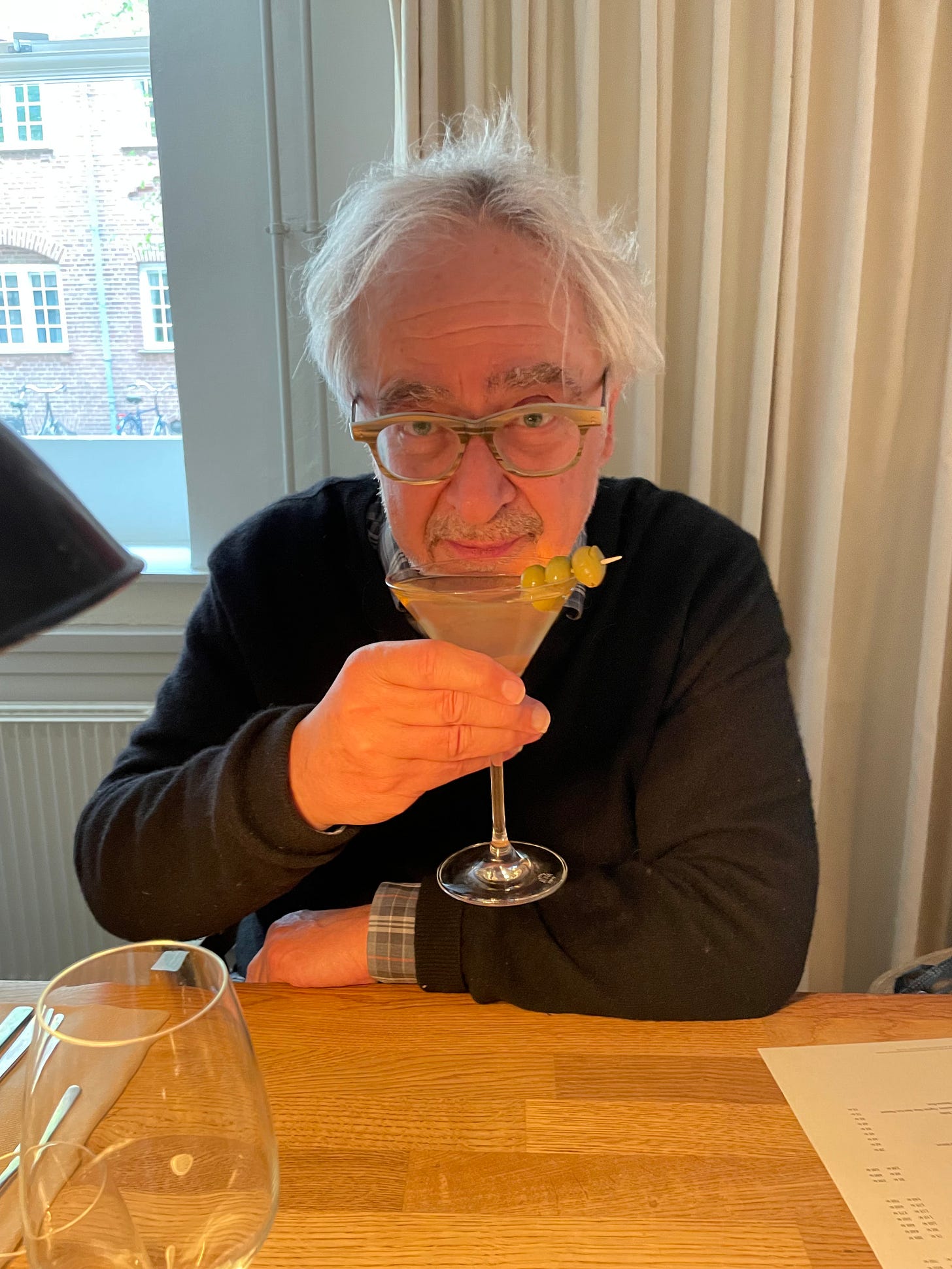The Endgame
Newsletter #65 - Civility
Toronto, May 12, 2024
Civility
My friend Philippe is the most civil of men—polite, gracious, and kind. That’s why it was shocking to hear him swear vigorously from the Court Philippe-Chatrier stands when Novak Djokovic easily beat Carlos Alcaraz in one of last year’s French Tennis Open semi-finals (Philippe and I went to the 2023 French Open together). But then Philippe is passionate about tennis and detests Djokovic.
Philippe lives in France and often complains that his countrymen are not always civil. “I cannot live with incivility,” he says. When I told him that my wife and I were going to Copenhagen for a few days holiday he approved and emailed, “It’s always humbling to witness the civility and social advance of a Scandinavian society.”
Copenhagen is, indeed, the most civil of cities. Wandering across the cobbled square of Kongens Nytorv, looking for the Royal Danish Academy of Art, we stopped a middle-aged man crossing the square and asked for help. He gave us careful directions to the Academy in the friendliest way. Then he said, “If you give me your email address, when I get home tonight I’ll send you some ideas of what else to see in Copenhagen.” Later that night we received a detailed and tailor-made tourist itinerary. Google told us that our benefactor was a distinguished Danish journalist. Civility was everywhere in Copenhagen. The day after we visited the Academy of Art, as we boarded a Metro train, a man ran up to us to give us the receipt we had by mistake left behind in the ticket vending machine.
Civility is the first cousin of kindness. It is more than politeness. It is kindness writ large. Politeness is formal, and can seem forced. Kindness is genuine and comes from the heart. My wife is big on kindness. She is herself the kindest of people. Sometimes she criticizes me for not being kind enough. “Don’t be so gruff,” she’ll say. “I know you don’t mean it, but gruffness can hurt.”
But is it possible to be too civil? Is something lost if civility is carried to extremes?
One day we took the train from Copenhagen to Humlebæk to visit the Louisiana Museum of Modern Art. We sat in a section marked as a “quiet zone,” assuming that meant no cell phone use. We started to chat sotto voce. A woman sitting across the aisle leant over and said sternly, “You are in a quiet zone. Talking is absolutely forbidden.” We moved to another part of the train. Quiet zones are probably a good idea, but there was something jarring about this encounter.
I asked my favourite chatbot, Perplexity, to tell me about rules in Denmark. Perplexity told me: “Denmark has a culture of conformity and trust in institutions, which contributes to a tendency to follow rules and regulations strictly. This is often seen as beneficial for maintaining social cohesion and supporting the welfare state... Complaints or objections to rules are not always well-received, as there is a cultural emphasis on self-policing and commonality.”
Complaints or objections to rules are not always well-received? I don’t like the sound of that. Complaints and objections to rules are often what keeps the polity and its institutions balanced and honest. They can contribute to progress and reform. I’ve sometimes been called a gadfly and I don’t take that as a criticism, quite the contrary. Wikipedia defines “gadfly” as “a person who interferes with the status quo of a society or community by posing novel, potentially upsetting questions, usually directed at authorities.”
Can you be a gadfly in Denmark? Certainly. The Danish existentialist philosopher Søren Kierkegaard (1813-1855) was a famous gadfly. But then Kierkegaard lived long before the “quiet zone” was invented.





There is a reason for scandinavians love of alcohol. We govern ourselves with a strong internal sense of doing the right thing. Our only escape is getting shitfaced drunk. Japan have the same issues. But… our countries have their shit together. Indoor plumbing and healthcare galore, and expensive beer.
I really like the idea of self-policing. There is way too much self-serving, self-pitying and entitled whining from all levels of our society. I wish there was more thought and restraint. Criticize by all means but know what you are talking about.